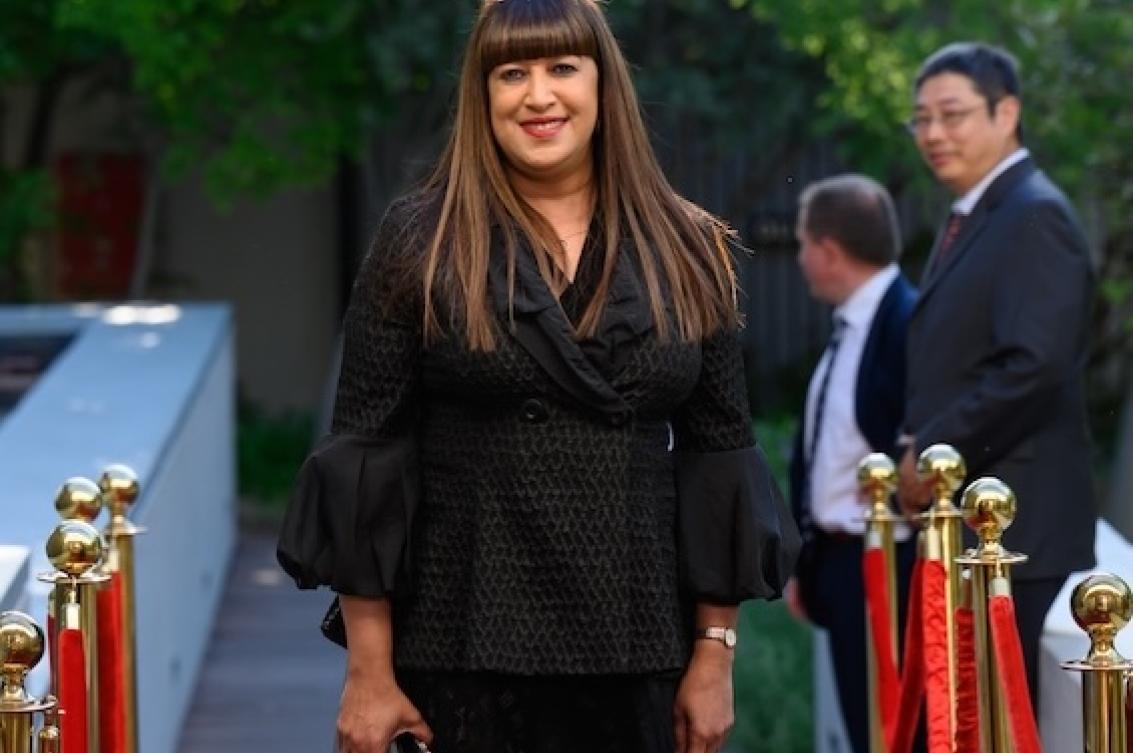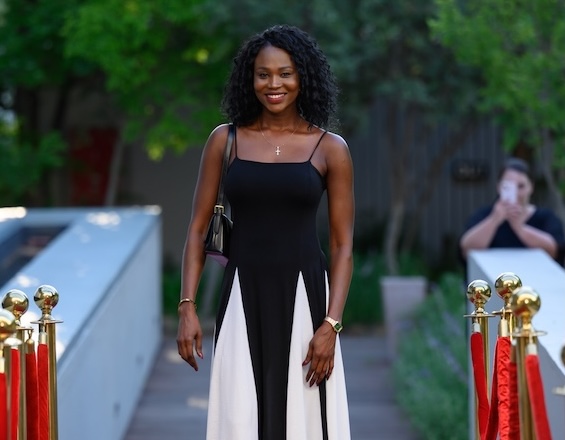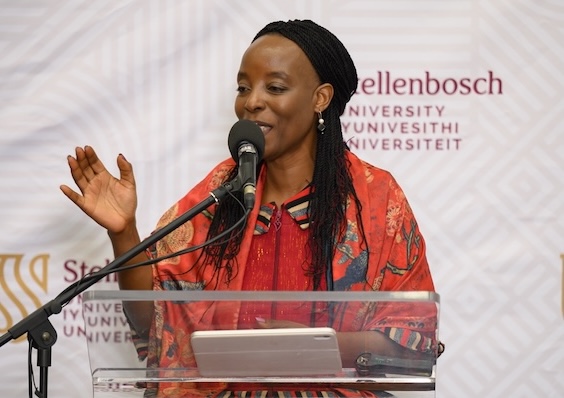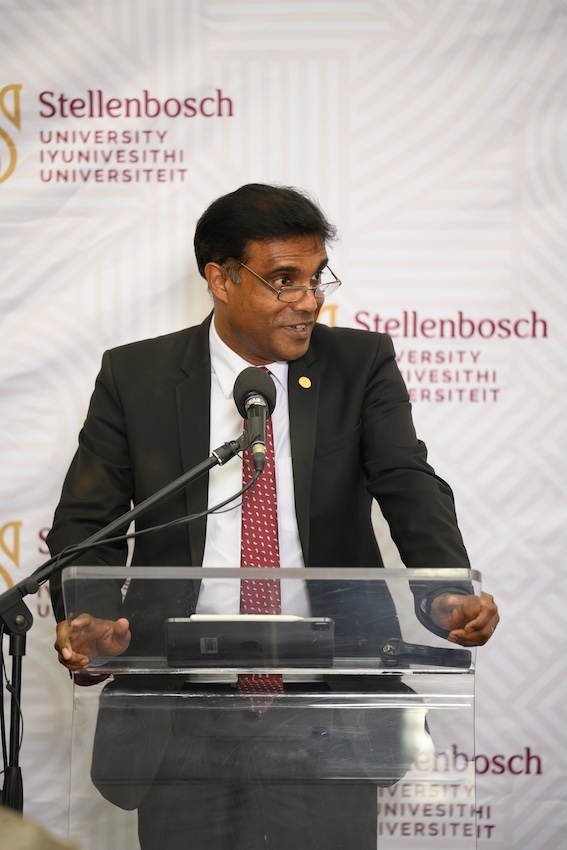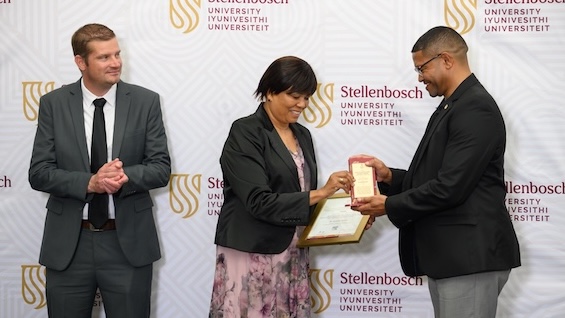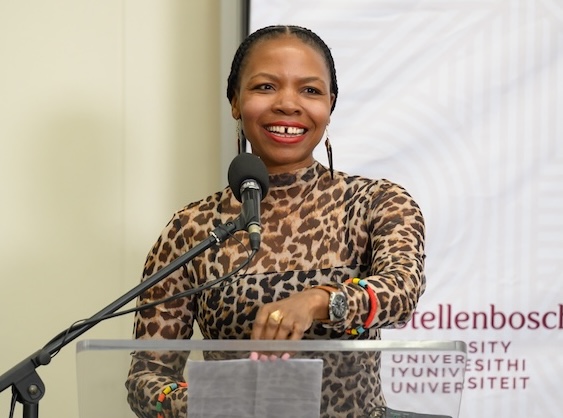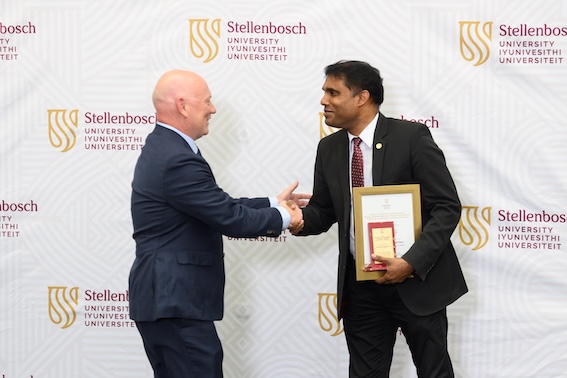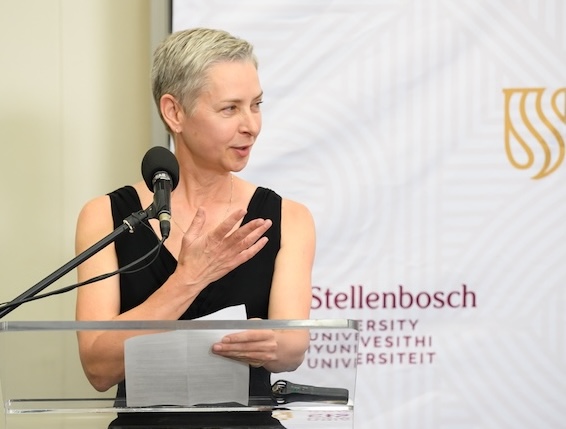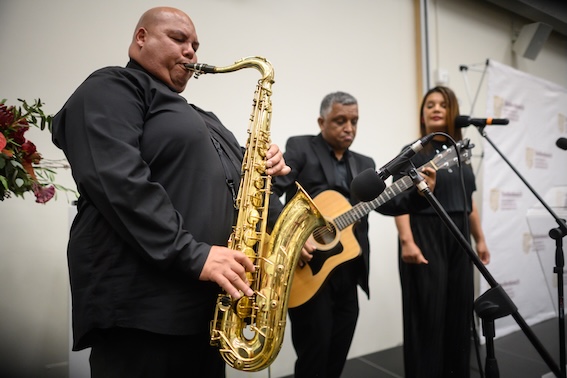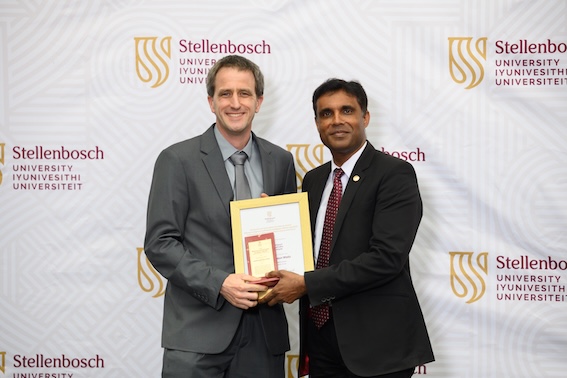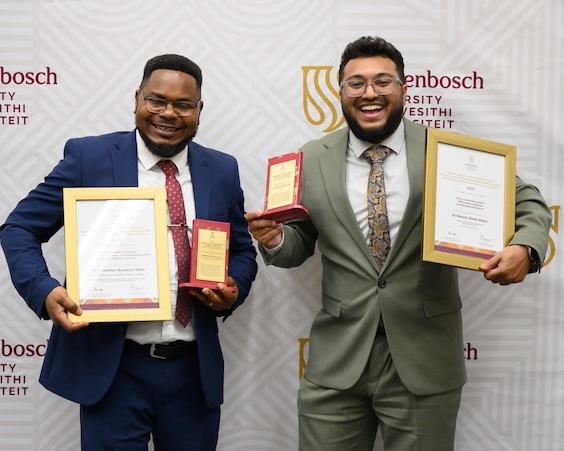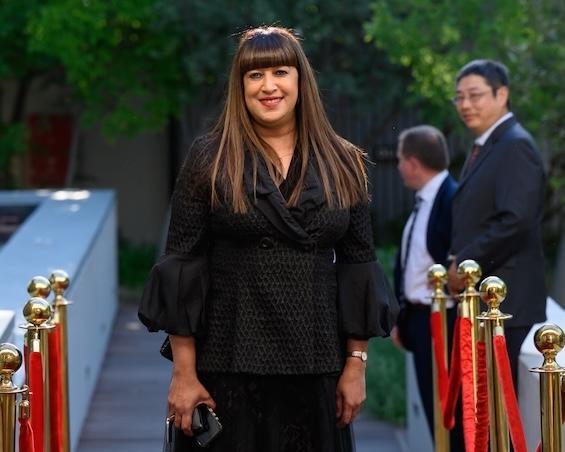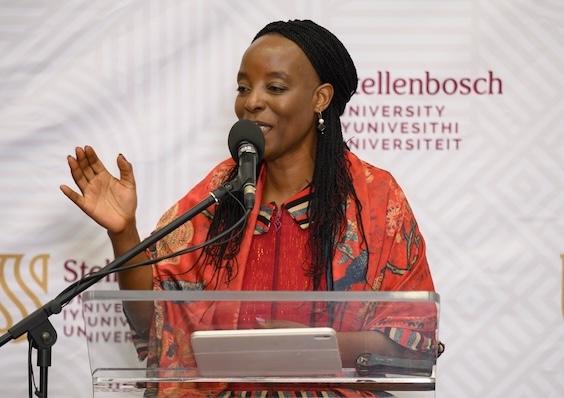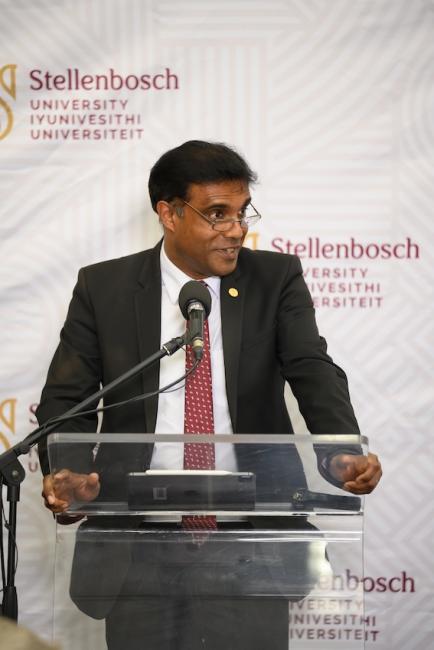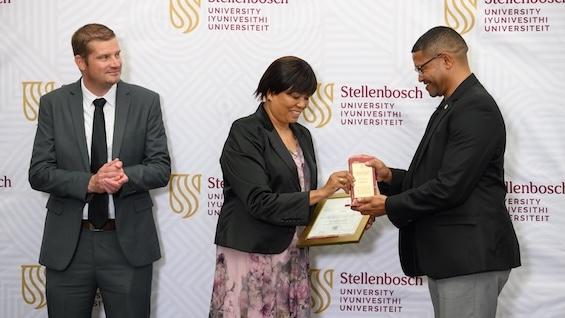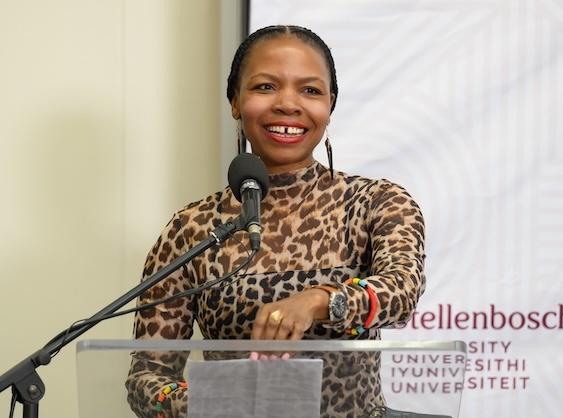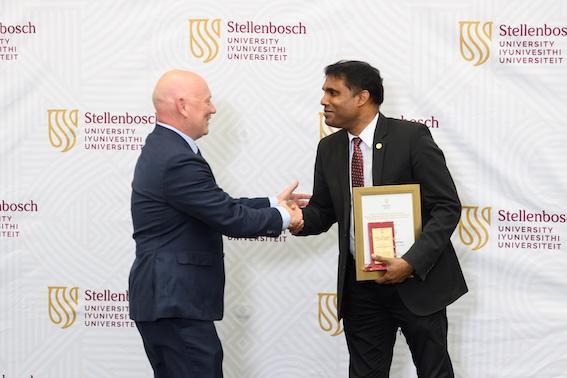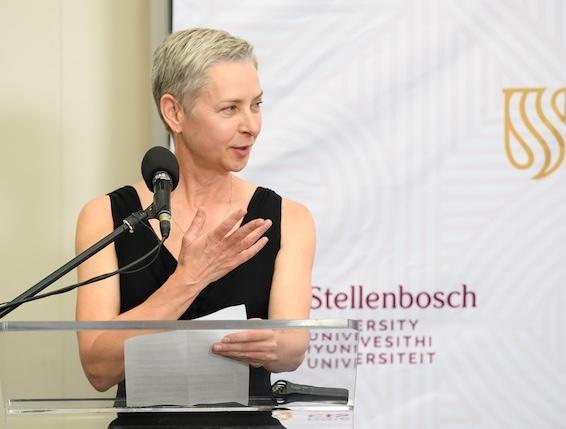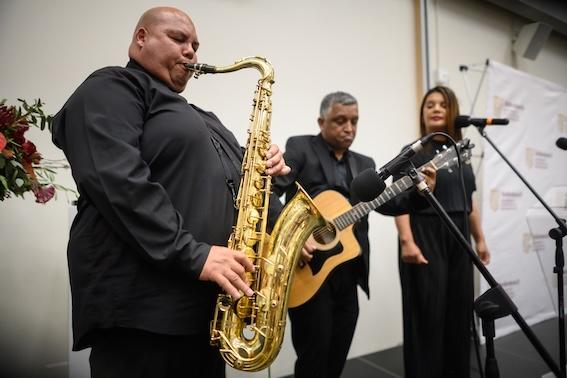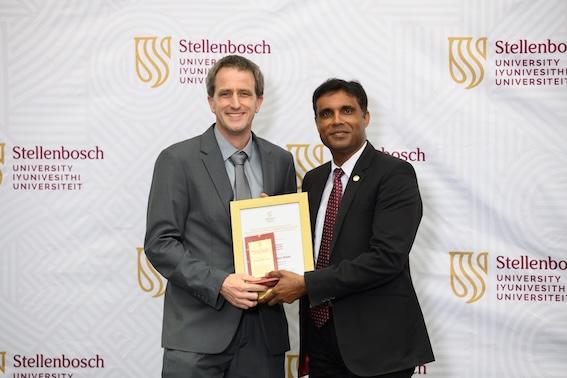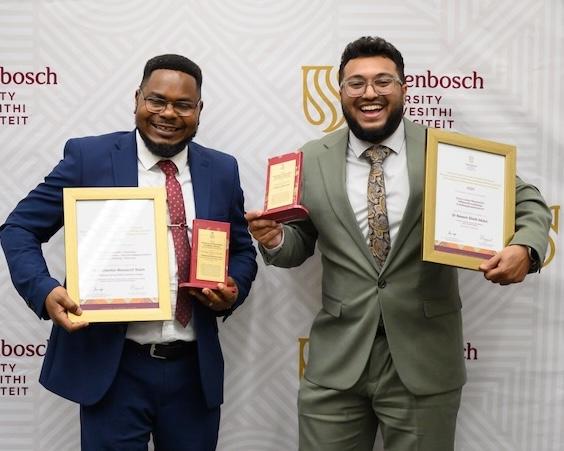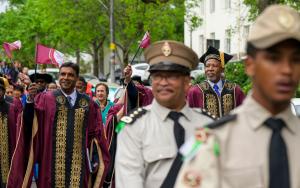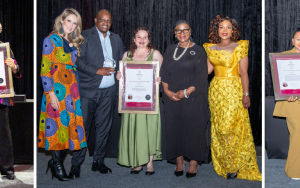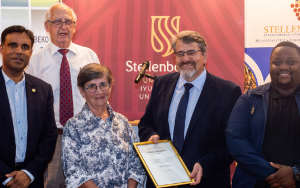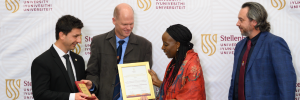
SU's brightest minds gathered this week at the STIAS for the 2025 Research and Innovation Excellence Awards.
SU honours top academics at Research and Innovation Excellence Awards
- The University celebrates outstanding researchers and innovators for transforming knowledge into sustainable, real-world impact.
- Vice-Chancellor Prof Deresh Ramjugernath and DVC Prof Sibusiso Moyo call for excellence grounded in purpose, collaboration and social responsibility.
- Awardees emphasise mentorship, inclusivity, and the collective spirit behind research success.
Stellenbosch University’s (SU) brightest minds gathered this week at the Stellenbosch Institute for Advanced Study (STIAS) for the 2025 Research and Innovation Excellence Awards – an evening that combined celebration, reflection and camaraderie. With the theme “Transforming knowledge into sustainable solutions”, the event recognised researchers, innovators, postdoctoral fellows and postgraduate students whose work has made a profound contribution to society.
The evening’s programme director, Dr Gillian Arendse, kept guests entertained with his characteristic wit while the Just Friends Trio provided elegant jazz interludes that added to the festive atmosphere.
In her opening address, Prof Sibusiso Moyo, Deputy Vice-Chancellor: Research, Innovation and Postgraduate Studies, reflected on a year of record-breaking achievement. “It is my great pleasure to welcome you to a celebration of the intellect, creativity and perseverance that define our institution,” she said.
She noted that SU continues to consolidate its position as Africa’s leading research-intensive university, driven by people, partnerships and purpose. Over the past year, the institution’s research income exceeded R1.3 billion, postgraduate enrolments rose above 10 600, and nearly 2 900 peer-reviewed articles were submitted. “Behind every number lies a story of perseverance, teamwork and impact that extends far beyond campus walls,” Moyo added.
Sustainability at the heart of excellence
She reminded guests that sustainability “is more than financial viability; it is about sustaining curiosity, integrity and relevance.” From climate-smart agriculture to AI-driven public health solutions, SU’s researchers are applying interdisciplinary thinking to the world’s most pressing challenges.
Moyo also highlighted the contributions of initiatives such as the Institute for the Preparedness and Prevention of Pandemics (IP3), the National Institute for Theoretical and Computational Sciences (NITheCS), and the two cross-faculty Schools for Climate Studies and for Data Science and Computational Thinking. These exemplify how collaboration across disciplines “ensures that knowledge serves society”.
“Our researchers remind us that research is also an act of hope – a belief that discovery can make the world better,” Moyo said. “As we move into the next strategic cycle, our focus remains clear: to advance knowledge in service of society, to embed sustainability in everything we do, and to strengthen our position as a university that shapes the future through research excellence.”
People the true measure of success
In his words of welcome, Prof Deresh Ramjugernath, Rector and Vice-Chancellor, praised the leadership and the dedication of SU’s research community. “Excellence is not a destination, but a journey of purpose and perseverance. Ideas lead to initiatives, initiatives to outcomes, and outcomes to impact.”
He reaffirmed SU’s mission to translate knowledge into societal good, saying the university’s success should be measured not only in rankings but in how research improves lives. Even so, he noted with pride that SU now ranks number two in Africa in the Times Higher Education 2026 rankings and performs strongly across disciplines – from Law, Education and Health Sciences to Agriculture and Forestry, where SU is number one in Africa and among the world’s top 100.
Looking ahead, he said the University’s Research and Innovation Blueprint 2026–2030 offers a clear path forward, focusing on transdisciplinary collaboration, digital transformation and sustainability. “The true measure of our success lies not in infrastructure or funding, but in our people. Our researchers, postdocs and students represent the lifeblood of Stellenbosch University’s research enterprise,” Ramjugernath concluded.
Celebrating SU’s finest minds
The evening culminated in the presentation of awards across multiple categories, including Research for Impact, Women in Research, Technology Transfer and Innovation, Postdoctoral and Postgraduate Excellence, and the newly introduced Open Access Awards celebrating visibility and accessibility in scholarly publishing.
Introducing the new Open Access Award, Ellen Tise, Senior Director, Library and Information Services, said the category is vital for enhancing the visibility and impact of research. “This is a very important category, because it contributes directly to the University's research goals and what we want to achieve,” Tise stressed. She noted that open access enables broader global readership, especially in Africa, and highlighted that nearly 70% of SU’s research is already published on open access platforms.
Prof Herman Wasserman, Chair of the Department of Journalism and one of two recipients of the Rector and Vice-Chancellor’s Research for Impact Award, said the recognition reflects the collective effort behind impactful research. He emphasised that his work on information integrity extends beyond academia, engaging activists, journalists and civil society to promote a truthful, trustworthy and non-polarising information ecosystem. “This award acknowledges that this sort of research has impact beyond just academic publications and literature but impacts people’s everyday lives,” Wasserman said.
Prof Soraya Seedat, distinguished professor and head of the psychiatry department at SU, was a recipient of research awards in no less than three categories – Most Prolific Open-access Author, Research Output and Postgraduate Supervision. She said she was very excited about the recognition and attributed her success to the people in her team. “I see it more as a reflection of the incredible early-career researchers, co-authors, and collaborators I get to work with every day. Their energy, ideas, and hard work make everything possible. These awards really belong to all of them.”
Prof Thulani Makhalanyane from the Department of Microbiology and The School for Data Science and Computational Thinking received recognition for mentoring postdoctoral research fellows. Makhalanyane said his own formative experience as a freshly minted PhD scholar informed his dedication to postdoctoral academics. “As a mentor, I now strive to create similar opportunities for postdocs in our group. That’s why I’m deeply honoured to receive this recognition from my colleagues. I’ll continue striving to be a nurturing and supportive postdoc host.”
Prof Anel du Plessis, Law Trust Chair in Urban Law and Sustainability Governance at the Faculty of Law, said she is grateful for the award and for SU’s recognition of women in research. “Many women face unique challenges in academia, yet their voices bring vital perspectives to law, society and justice,” Du Plessis noted. “Supporting and mentoring women researchers has been one of the most rewarding parts of my academic journey. Many of them have moved on to become academics in their own right.”
- Click here to view the full list of Research Award Winners.

